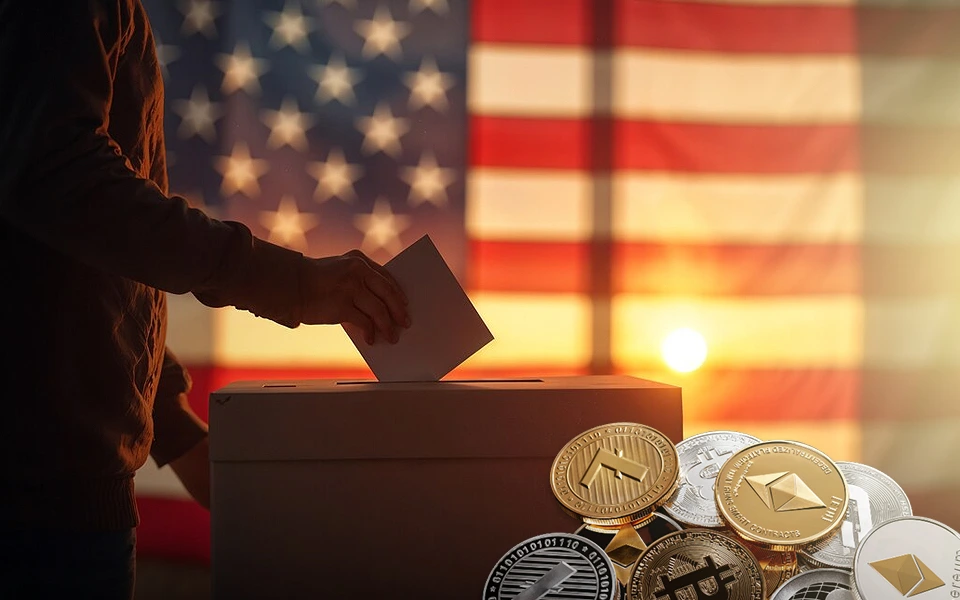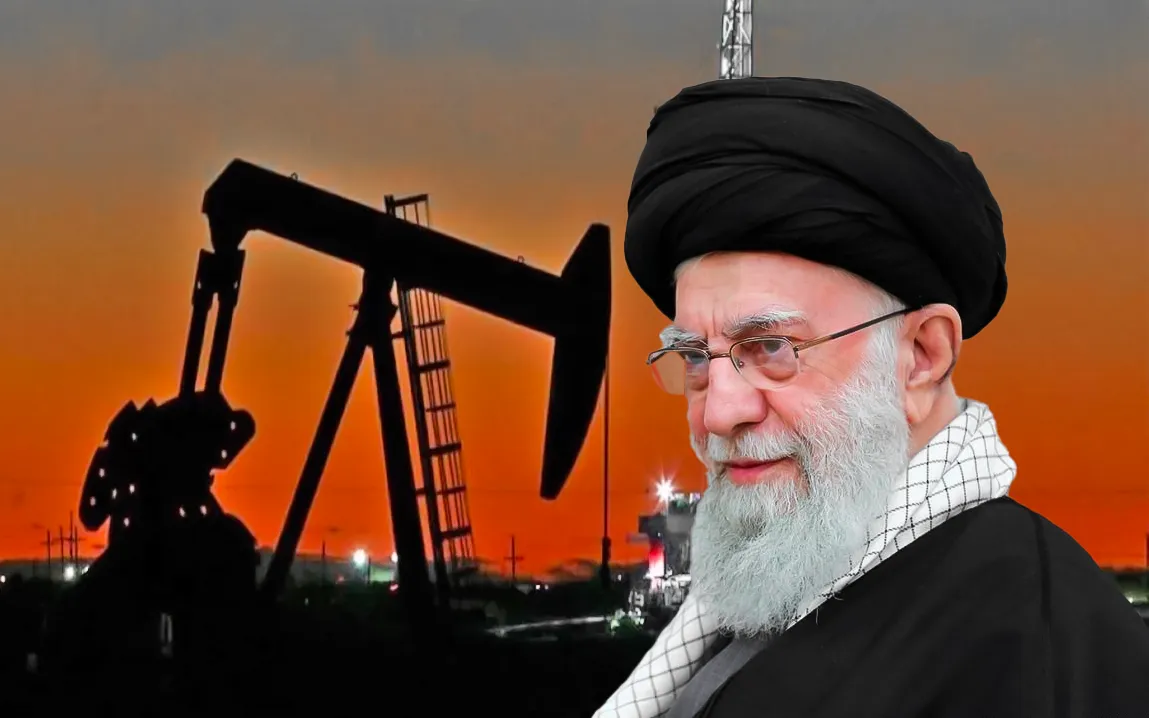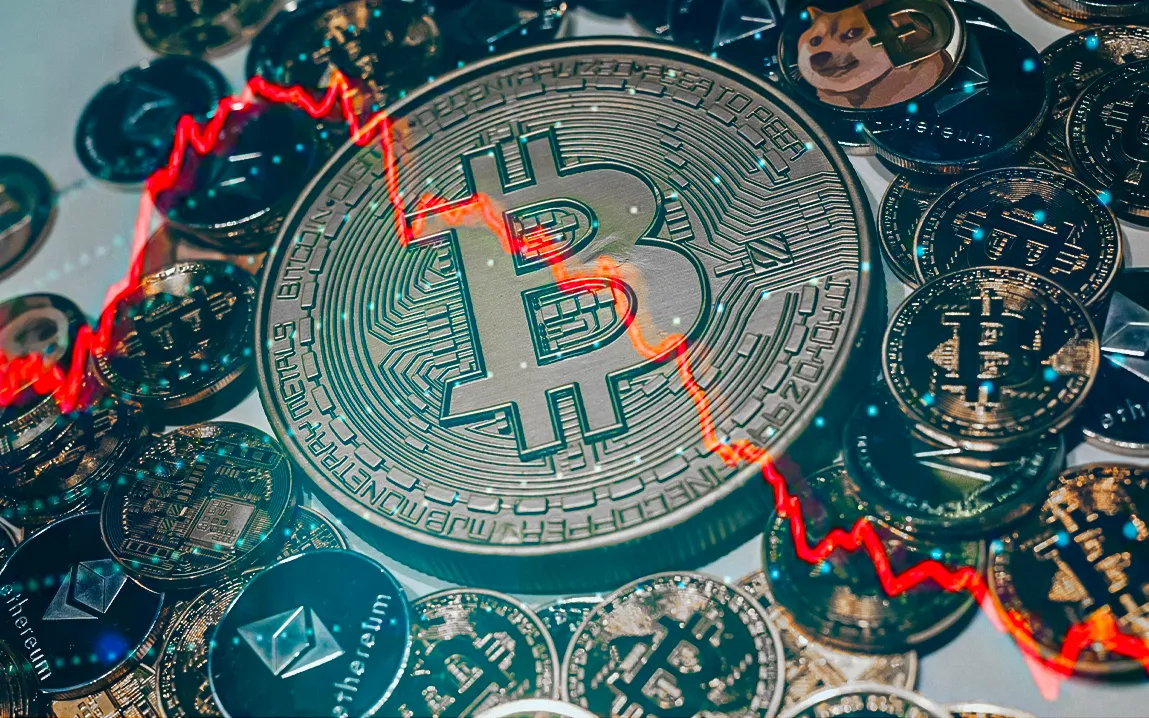The 2024 U.S. presidential election has catapulted cryptocurrency into the center of the political universe-aka “America’s crypto election.” Though only a little more than a decade old, the industry is unprecedentedly powerful in electoral politics. Once a decidedly niche issue, cryptocurrency is currently one of many touchstone issues for many voters, with its influence shaping both parties’ strategies in this election.
The former President Donald Trump, who once declared cryptocurrencies a “scam,” made digital assets the centerpiece of his campaign. He promised to make the U.S. the “crypto capital of the planet,” in hopes of winning millions of crypto enthusiasts. The former president’s pivot is the latest element of an emerging push to court voters focused on single-issue issues related to decentralized finance.
At the same time, his Democratic challenger, Vice President Kamala Harris, has also been more cautious but crypto-friendly, seeking to differentiate herself from the hardline crypto skeptics in her party, such as Senator Elizabeth Warren and SEC Chair Gary Gensler, both of whom have made very public statements against the crypto industry.
But the really important thing at the heart of the “crypto election” isn’t just the political rhetoric; it’s the financial muscle the industry is flexing. Pro-crypto Super PACs like Fairshake have poured millions into congressional and Senate races in support of or in opposition to candidates standing in the way of crypto interests.
One, Fairshake, has raised more than $200 million on its own, with the backing of major players Coinbase, Ripple, and Andreessen Horowitz. But the industry’s donations have been strategic, working to unseat anti-crypto lawmakers-like Senator Sherrod Brown-and support crypto-friendly candidates across parties.
However, this election cycle has laid bare deep divides within the crypto community itself. Some factions lean markedly toward the Republican party, attracted by pro-crypto policies from Trump and the belief that Republicans are more likely to advance legislation favorable to the industry.
But there is also concern within the industry that getting too cozy with the GOP will only antagonize the Democratic lawmakers, some of whom are equally eager to build inroads with the crypto world. The crypto civil war has complicated life for the industry’s bigger ambitions as the policy influence effort gets caught in a crossfire of partisanship.
The crypto sector has a lot at stake in this election. A potential victory by Trump could see a friendlier regulatory environment toward digital assets, even the rollback of some strict measures imposed during Biden’s administration by the SEC. Trump promised to fire the chair of the SEC, Gensler, and create a more cryptocurrency-friendly regulatory framework.
But he has signaled that she would adopt a more measured approach, in all likelihood knocking off some of the most Draconian positions without removing the current rules and regulations root and branch.
For voters, and young voters in particular, cryptocurrency has become a surprisingly outsized issue. Of those polled, almost one in three said they consider a candidate’s crypto position when deciding which candidate to support. In places like Arizona, Michigan, and Pennsylvania, where the margins of victory can be razor-thin, crypto could indeed prove to be the deciding factor.
That’s because the Harris Poll finds a large portion are independent voters and minority groups who are crypto-engaged, making crypto simply not an issue to be ignored.
The farce lies in the fact that between huge financial influence in the crypto industry and a general understanding, even interest of the common voter in the issue, falls a large chasm. Most voters stay tuned to traditional “kitchen table” issues: inflation, healthcare, jobs.
Crypto is, well, very niche for most people. For that matter, in a substantially few instances, do crypto political ads, fund digital assets directly, but highlight broad economic concerns.
In all, the election of 2024 represents a real tipping point in how cryptocurrency will be perceived within the United States. Whereas crypto has grown as a financial force to be reckoned with, the dynamic created for this election says volumes about the interplay that goes on between politics, policy, and financial interests.
Whether it will actually determine the outcome remains to be seen, but one thing is for sure: this “crypto election” is a lot more than a fight over digital currency; it reflects an industry of increasing influence still finding its place in the American political landscape.



